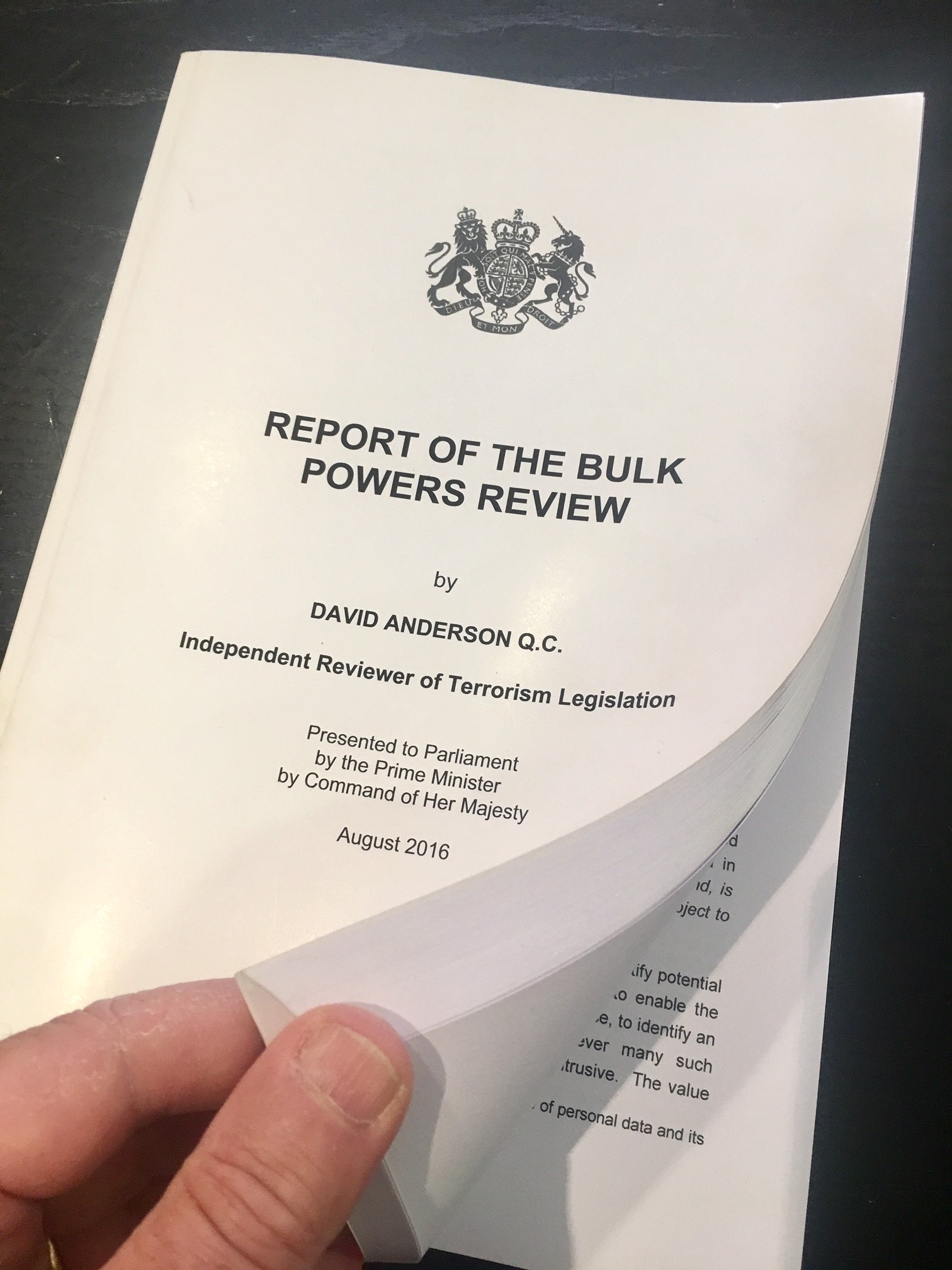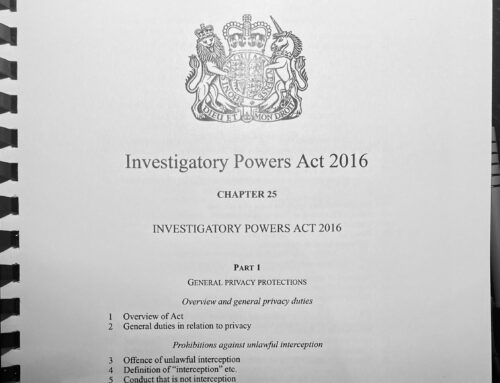The report of my Bulk Powers Review, which I delivered to the Prime Minister on 7 August, was published to Parliament (in unaltered form, and without redactions or confidential annex) at 11 am today.
Web and print versions of the report are on the gov.uk website, and a PDF copy of the report is here: Bulk Powers Review – final report. It begins with a 1-page Executive Summary. The document speaks for itself, and I will not be doing any media around the launch.
I would emphasise the following points:
- The Review looked only at the operational case for the four powers under review, including whether alternative means could have been as effective in achieving useful results. I was not asked to advise on whether the four Bulk Powers under review were desirable, or should be passed into law, or on the safeguards that should be applied to them. These matters have been the subject of extensive evidence to parliamentary committees (see e.g. this recent summary by the Interception Commissioner’s Office), and are now for Parliament to consider.
- Three of the powers under review (bulk interception, bulk acquisition of communications data and bulk personal datasets) are already in use across the range of MI5, MI6 and GCHQ activity, from cyber-defence, counter-terrorism and counter-espionage to child sexual abuse and organised crime. They play an important part in identifying, understanding and averting threats in Great Britain, Northern Ireland and further afield. After close examination of numerous case studies, the Review concluded that other techniques could sometimes (though not always) be used to achieve these objectives: but that they would often be less effective, more dangerous, more resource-intensive, more intrusive or slower.
- The Report accordingly concludes that there is a proven operational case for the three powers already in use. It also concludes that there is a distinct (though not yet proven) operational case for the fourth power, bulk equipment interference.
- But the pace of change is breathtaking. If they are to be satisfied that the use of these powers is necessary and proportionate, and that MI5, MI6 and GCHQ have done everything possible to minimise the privacy footprint of their activities, the Government and – in particular – the new Investigatory Powers Commission need to be fully and independently informed about the latest technological developments. The Report makes a single, major, recommendation: that the Investigatory Powers Bill be amended to provide for a Technical Advisory Panel of security-cleared independent academics and industry experts to be appointed by the IPC “to advise the IPC and the Secretary of State on the impact of changing technology on the exercise of investigatory powers and on the availability of techniques to use those powers while minimising interference with privacy“.
As the Report concludes:
“This Report has declared the powers under review to have a clear operational purpose. But like an old-fashioned snapshot, it will fade in time. The world is changing with great speed, and new questions will arise about the exercise, utility and intrusiveness of these strong capabilities. If adopted, my recommendation will enable those questions to be answered by a strong oversight body on a properly informed basis.”
The Investigatory Powers Bill of which the bulk powers form part will now continue its progress through Parliament with a committee session in the House of Lords on 5 September.






